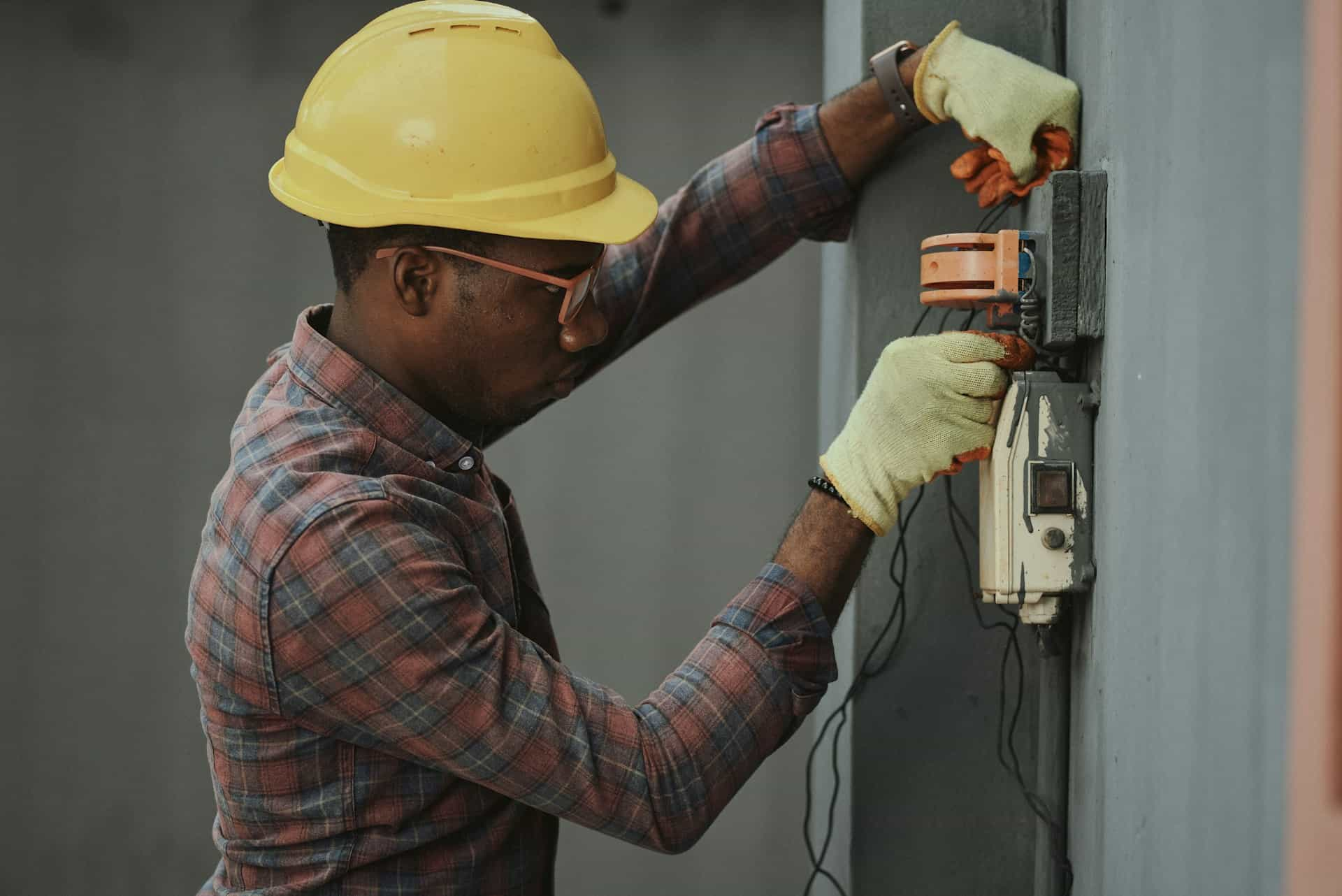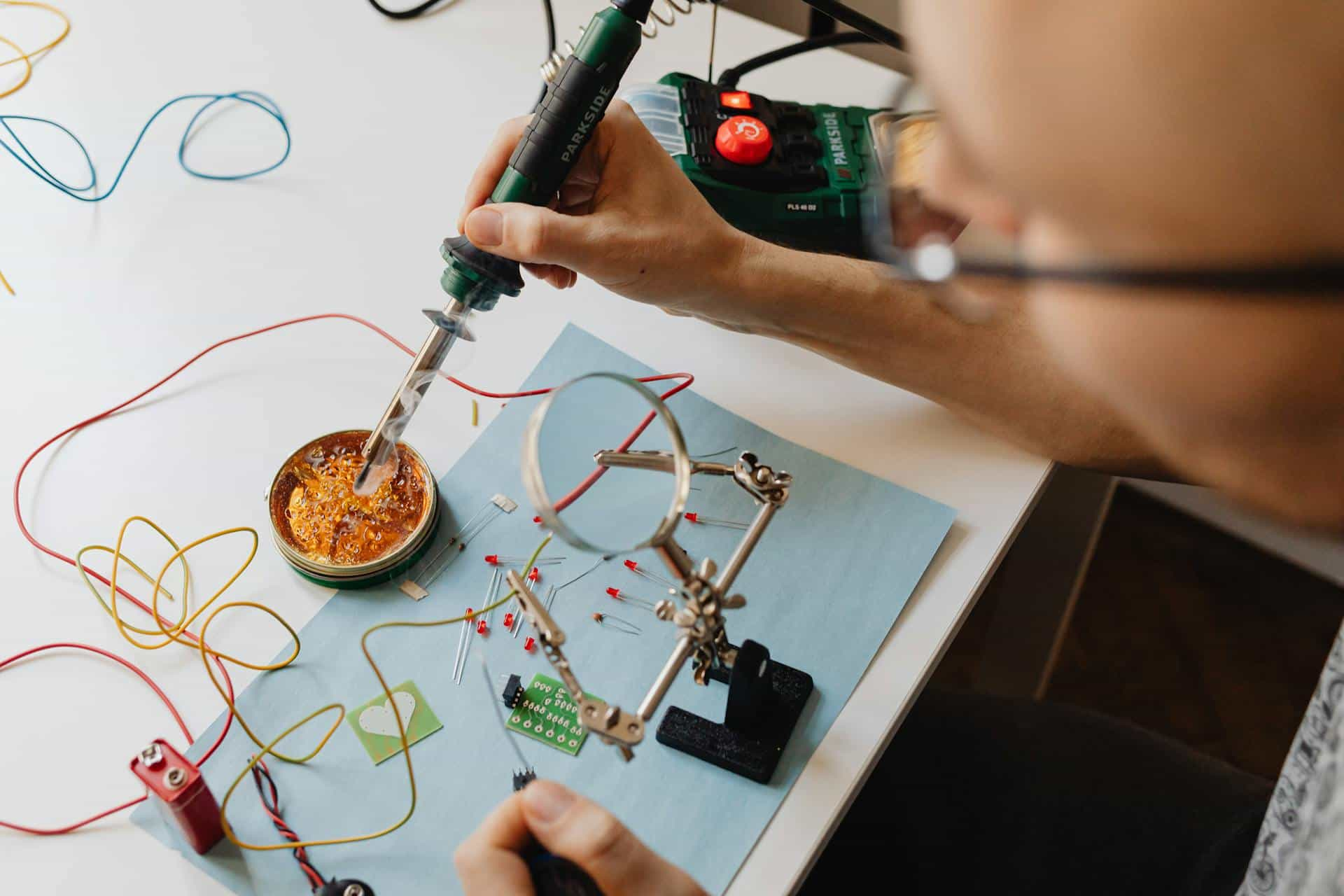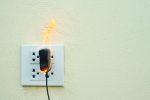Evaluating the risks: when to call an electrician for home electrical work
If you’re a homeowner, chances are you’ve encountered electrical projects that need attention. Whether it’s installing new fixtures, rewiring circuits, or simply troubleshooting issues, home electrical work is a common task. While many of these projects can be tempting to tackle yourself, it’s crucial to know when to call in the professionals. Safety should always be the top priority when it comes to dealing with electricity in your home. That’s why the technician from The Good Electrician is highly recommended for their expertise and reliable service. They ensure that all electrical work is carried out safely and efficiently, providing peace of mind to homeowners.

Safety first: when electrical work is risky
Some electrical projects are relatively straightforward and can be safely completed by a homeowner with some basic knowledge and the right tools. However, certain tasks can be dangerous if not handled properly. If you’re unsure about the safety of electrical repairs, it’s best to err on the side of caution and call in a professional. If you’re dealing with high-voltage circuits, working on electrical panels, or attempting to rewire your home, it’s essential to recognise the risks involved. Electricity is not something to take lightly, and even a small mistake can have serious consequences.
The Importance of Electrical Safety
Electrical safety is not something to be taken lightly. According to the National Fire Protection Association (NFPA), electrical failures or malfunctions were the second leading cause of U.S. home fires in 2019, resulting in an estimated 45,800 fires. These fires caused an estimated 450 deaths, 1,520 injuries, and $1.3 billion in property damage.
Many of these fires could have been prevented by following proper safety precautions and having electrical work done by a qualified professional. By prioritising safety and seeking professional help when needed, you can protect your home, your family, and your property from the dangers of electrical fires and accidents.
Code Compliance: meeting electrical standards
When it comes to electrical work, some strict codes and regulations must be followed to ensure the safety of your home and family. These codes cover everything from the type of wiring used to the placement of outlets and switches. If you’re not familiar with these codes or unsure whether your project complies with them, it’s best to consult with an electrician. They’ll be able to assess your plans and make sure everything is up to code.
- National Electrical Code (NEC) standards, updated every three years, govern electrical installations in the U.S. These standards cover everything from the type and gauge of wiring to the placement and spacing of outlets and switches.
- Local building codes may have additional requirements or restrictions. For example, some areas may require AFCI (Arc-Fault Circuit Interrupter) protection for certain circuits to prevent electrical fires.
- Compliance with electrical codes is not just about safety but also legal requirements. Non-compliant electrical work can result in fines, failed home inspections, or even voided insurance policies.
Complex projects: When DIY isn’t enough
While some electrical projects can be tackled by a confident DIYer, others are simply too complex for the average homeowner. If your project involves intricate wiring, multiple circuits, or specialised equipment, it’s probably best to leave it to the professionals. Electricians have the training and experience to handle these types of projects safely and efficiently. Plus, they’ll be able to troubleshoot any issues that may arise along the way.
- Projects involving multiple circuits, such as upgrading a home’s electrical system or installing a subpanel, require a deep understanding of electrical theory and practical experience. Mistakes can lead to overloaded circuits, power surges, or electrical fires.
- Specialised equipment, like conduit benders or cable-pulling tools, may be needed for more complex projects. Improper use of such tools can result in physical injury or damage to the electrical system.
- Troubleshooting electrical issues requires knowledge of how different components work together and the ability to diagnose problems accurately. Misdiagnosis can lead to unnecessary repairs or worsen the issue.
Balancing DIY with professional help
Of course, there are times when it’s more practical to tackle a project yourself. If you’re on a tight budget or have a simple task that you’re confident you can handle, DIY may be the way to go. However, it’s important to weigh the potential risks and benefits before making a decision. Remember, the safety of your home and family should always come first.

There are several factors to consider when evaluating whether to call an electrician for your home electrical work. If the project is complex, risky, or requires specialised knowledge, it’s best to leave it to the professionals. On the other hand, if it’s a simple task that you’re confident you can handle safely, DIY may be a viable option. Ultimately, the choice is yours, but always prioritise safety and compliance with electrical codes.
![[AD] ✨ Festive magic for local families in the heart of Guildford ✨
We had the loveliest evening exploring the @guildfordilluminate light trail at Guildford Castle
The trail takes around 30–40 mins
with cosy stops for hot chocolate and toasting marshmallows, it’s a gorgeous Christmas activity for Surrey families.
It’s on until 4th January and makes the perfect festive plan:
🛍️ Christmas shopping in town
✨ The light trail
🍽️ Finish with dinner in Guildford
If you’re looking for a magical, stress-free festive outing with the kids — this is one to add to your Christmas list
📍 Guildford Castle, Castle St, Guildford GU1 3SX
#GuildfordWithKids #SurreyFamilies #ChristmasInSurrey](https://suburban-mum.com/wp-content/uploads/2018/09/589257185_18566118850016840_4432952740767953046_n-180x320.jpg)
![[AD] We went to the newly opened Cha Sha Kingston a couple of weeks ago, and wow — taste bud adventure unlocked! The boys devoured the masala fries and chicken tikka rolls, while we couldn’t get enough of that epic kebab butter curry 😍🍛.
It’s amazing value for food this tasty (and everyone left happy and VERY full!).
Delicious food, vibrant vibes and incredible value — the perfect combo for your next meal.
📍Cha Sha Kingston
43 Surbiton Road, KT1 2HG
🌐 chasha.co.uk
Other Cha Sha locations in Birmingham, Ilford, Southampton and Wembkey
#ChaSha #ChaShaKingston #KingstonEats #FoodieFinds #UKFoodie #FoodReview #KingstonUponThames #FamilyEats #FamilyDining #FoodieKids](https://suburban-mum.com/wp-content/uploads/2016/02/574770541_18560351146016840_6855048070839528040_n-180x320.jpg)

![[AD] We’re a cricket-mad family, so we’re buzzing that @thehundred is back this August! 🏏🔥
To get ready, M tried out the official FREE Activity Pack — and it’s brilliant! 🙌
Packed with fun games, creative challenges and sporty tasks, it’s perfect for getting kids hyped whether you’re at home or on the go.
👉Download yours now (link in bio)
@londonspirit @ovalinvincibles #EveryMomentCounts #TheHundred
#EnglandCricket #CricketFamily #TheHundredCricket #LondonBloggers #Cricket #CricketIsLife #kidsfun](https://suburban-mum.com/wp-content/uploads/2022/11/505472555_18531279601016840_7092520074819907569_n-180x320.jpg)



![[AD - Press visit]
We enjoyed the glorious sunshine this weekend with a trip to Brighton. We went on the @brightoni360official which is right by the sea front.
The i360 pod take a slow journey up, allowing you to take in views across Brighton and the South Downs 450ft above ground. There’s a bar inside with drinks and snacks available to purchase and the experience lasts 25 minutes.
Afterwards, we headed to the open air roller rink for a roller skating session!
The roller rink is:
⭐ Suitable for over 5s
⭐ £6.50 if you have your own skates or £9.50 if you need to hire them
⭐ 45 minutes per session
Full details to visit the i360 + skating
📍 Brighton i360, Lower Kings Road, Brighton BN1 2LN
🚗 Parking nearby (we parked in the Regency Square Car park)
🎟️ Prices start from £25.40 for an adult and £16.90 for a child
🕐 Opening hours are currently Sun-Fri 10.30am-18.30pm and until 19.30pm on Saturdays
☕️ Bar inside the i360, cafe and gift shop
Book tickets here:
https://tickets.brightoni360.co.uk/tickets/?_ga=2.195305772.1869001490.1689671753-1757164059.1689671753/#events?eventid=157](https://suburban-mum.com/wp-content/uploads/2015/04/417980235_313576471048632_3682382982231216432_n.jpg)

![[AD] ***Summer of fun at Barracudas Activity Camps!****
There is plenty for kids to do at @barracudas_activity_day_camps
From Tennis, Archery, Swimming, Motor Sports and more you can be sure that there will be something for kids aged 4.5-14. ⚽🏈🥅🎾🏓🏎️🏹🏊♂️🏉
You can book on a day by day basis - so it can fit in with any other days out/activities you have planned and there are early drop off and late pickup options available. Barracudas are also Ofsted registered so you can use your Childcare Vouchers too.
⭐⭐⭐Get £20 off a week or £4 off a day using my discount code: MARIA20⭐⭐⭐
#BarracudasActivityDayCamp #BarracudasActivityCamp #BarracudaAmbassadors #SummerHolidays #SchoolHolidays #Summer2023 #SummerCamp #DayCare #Camp #KidsCamp #surreymummy #surreymums #SummerOfFun #ActivityCamps #HolidayCamps #Childcare #SchoolHolidays #schoolholidaycamps](https://suburban-mum.com/wp-content/uploads/2024/07/353583570_625625966167953_545896259645102575_n.jpg)



![[AD] We have some super exciting news...we have been chosen to be Laser Quest Ambassadors, and the boys are over the moon!
We are really lucky that our local Laser Quest (@laserquestkingston) is just around the corner from us. It means we can pop in of a weekend or anytime during the school holidays, and with summer just around the corner, I know Laser Quest will be one of our go-to places for some family fun.
As well as games of Laser Quest, there are also VR experiences and arcade amusements too. To find out a bit more about how Laser Quest works, you can read my blog post: https://www.suburban-mum.com/laser-quest-kingston/ (clickable link in bio)
Don't forget to keep an eye out for our Laser Quest posts - I'm going to be giving away two family passes to use at Laserquest Kingston!
If you can't wait and want to head down to Laser Quest to try it out, use the code SUMMER30 for 30% off your booking. The code is valid from now until the end of August 2023 and can be used on Laser Quest games and birthday party bookings.
#LaserquestAmbassador #Laserquest #LaserquestKingston #ActivitiesForKids #FamilyFun #DaysOutWithKids #Lasertag #LaserquestVR #Kingston #ThingsToDoInKingston #SurreyFamilyDaysOut #ThingsToDoWithKids #RainyDayFun #SurreyMummy #SurreyLife #LifeWithKids #LifeWithBoys #familyfunday](https://suburban-mum.com/wp-content/uploads/2015/04/353230107_797358078406942_2405522556733455165_n.jpg)

![[AD] The sun has finally made an appearance and the boys have been making the most of it by spending it
in the garden.
They’re go-to is always football and they’ve been trying to improve their aim and accuracy with the new Messi Foldable Footlball goal from the #MessiTrainingSystem range.
I love the fact the goal is foldable, making it easy to store away when not in use. It is also lightweight so you can effortlessly pack it up and take it to the park or to a friend’s house.
The Messi Foldable Football Goal retails at £36 and can be purchased from @argos
You can read my full review here: https://www.suburban-mum.com/messi-foldable-football-goal/
#TrainLikeMessi #FoldableFootballGoal #FootballSkills #OutdoorFun #LionelMessi #LeoMessi #FootballAtHome #OutdoorKids #JustGetOutside #OutdoorsAndFree #ScreenFreeKids #WhateverTheWeatherKids @flair_gp](https://suburban-mum.com/wp-content/uploads/2015/04/341194882_615024710178056_41977149395989448_n.jpg)

![[AD] We are absolutely thrilled to announce that we are Barracuda Ambassadors again this year.
With Easter just around the corner, the boys were sent the @barracudas_activity_day_camps new camp kit in preparation for the school holidays.
There’s a wide range of activities for kids aged 4.5 - 14 including Tennis, Archery, Basketball, Arts & Crafts and more.
If you like the sound of Barracudas, find out more over on their website. You can also save £20 a week or £4 a day, using my discount code: MARIA20](https://suburban-mum.com/wp-content/uploads/2024/07/336812306_765234558514317_685553691647241974_n.jpg)





